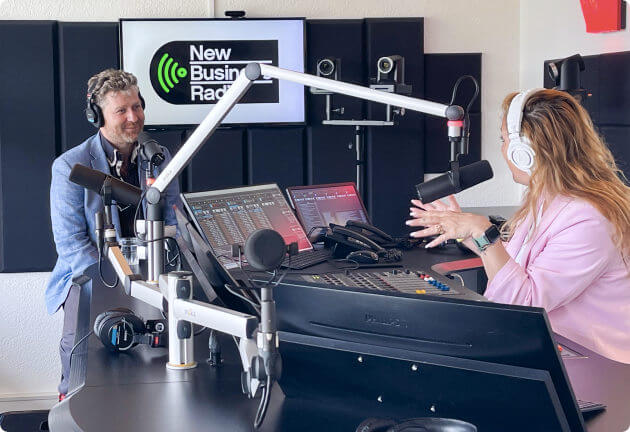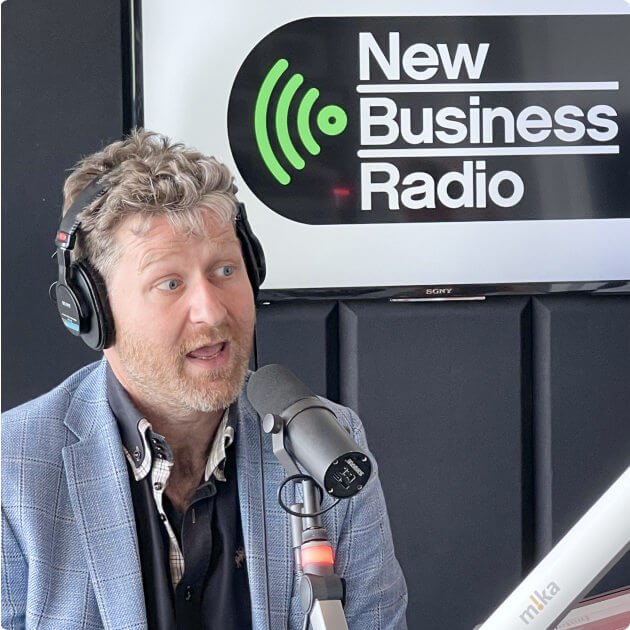Life takes unexpected turns. Entrepreneur Jeroen de Jong swiftly organized a company with his partners during the COVID-19 pandemic to meet the demand for coronavirus tests. When the storm subsided, he continued with Easly, an innovative company in digital healthcare. De Jong shared his story on the Let’s Talk Business podcast with host Fabienne de Vries. Here’s a glimpse of their conversation.

You are the CEO of Easly, a healthcare startup that flourished in 2023. Does adventure run in your blood?
“I’ve always been an entrepreneur. I started my first business at the age of 17. I love the challenging nature of entrepreneurship. Every time it’s something different, no day is the same. Of course, there are challenges, but a good friend gave me a motto: no struggle, no victory. So, that pretty much sums up my life.”
You ran a company in advertising signage - Platixmex. And then, the COVID-19 pandemic hit.
“I still have that company, where we handle the decoration for events. But with COVID-19, it slowed down for a while. We were afraid to even answer the phone at the office. I came across commercial COVID-19 tests abroad, initially offered for 150 to 200 euros. I found that too expensive. So, with my Belgian partner, we decided to offer cheaper COVID-19 tests in Belgium. We made a plan, developed an application, and gathered a team of doctors around us. Right from the start, we set up the Rolls Royce of coronavirus test centers. Everything fell into place.”
You entered the market with a test priced at 59 euros, while others were at 150 euros. Did that raise eyebrows?
“We thought it would be a game-changer, and it turned out to be later on. But initially, people thought: everyone is at a high price, and you’re offering it cheaper, so something must be wrong. However, the inspection agreed with us. We did well, especially because we formed a team of doctors and specialists from the beginning who could advise us.”
What happened to Spoedtestcorona when the pandemic subsided?
“It still exists; we just don’t conduct as many tests anymore. When the pandemic waned, we started exploring other plans and ideas. What else could we do? By then, we also had our own laboratory for PCR diagnostics. We then set up a company for diagnostic medical self-tests. Easly was born. We have introduced a beautiful line of STD tests to the market. And we are the only ones in the Netherlands with a PCR test for scabies, a hot topic right now. We are continually expanding our offerings.”

Preventive medical examinations are important for you. Why?
“I think it’s crucial that healthcare costs ultimately become manageable again, and people have access to and continue to have access to the healthcare system. And in the latter point lies the danger: if the pressure on the system becomes too great, people may lose their care. Health is the most important thing. With our preventive self-tests, you gain insight into your health without dealing with doctors and waiting times. Understanding your health status also means leading a healthier life, maybe preventing illness.”
Are you easing the pressure on overloaded GPs?
“Absolutely. Until recently, doctors didn’t like it when you were into preventive measures. The fear was that preventive testing would lead people into the healthcare system, costing money. However, you can see a change in that now. For us, the tension with GPs is one reason we deploy our own team of doctors to assess test results and provide good advice. We coach the customer in that. People are becoming more assertive and just want to know things for themselves. But it remains important to weigh carefully: when do I reassure someone, when do I refer someone?”
The digital environment is central at Easly. How does that work?
“The results of our tests are displayed in a highly secure online portal and in our own Easly application, where you can track the development of tested values over time. This can be very useful, for example, when there is a risk of developing diabetes. For such a long-term process, we offer a subscription. Meanwhile, developments in the sector are not standing still. There are increasing AI applications in healthcare. I am a big advocate of new technologies, new ideas, and smartly applying these solutions in healthcare, which is currently under strain.”






